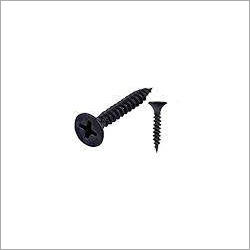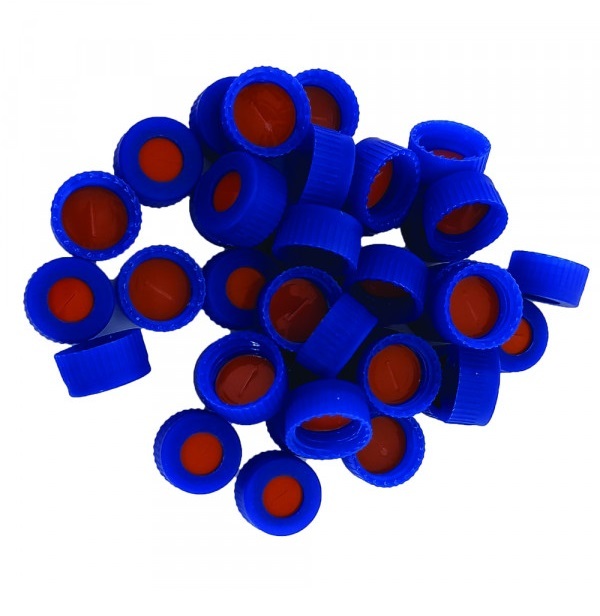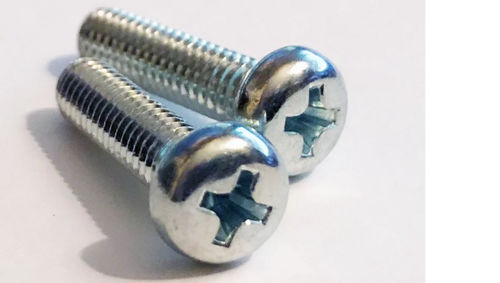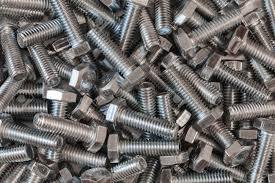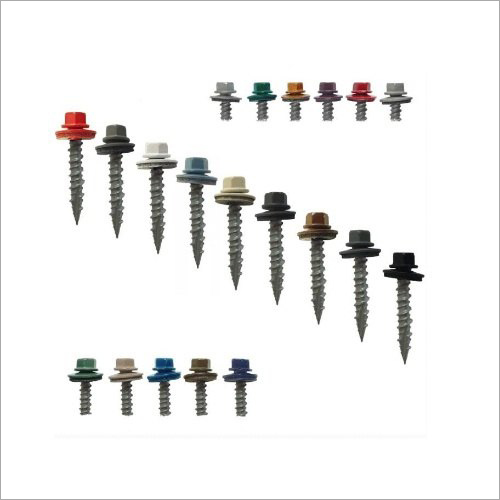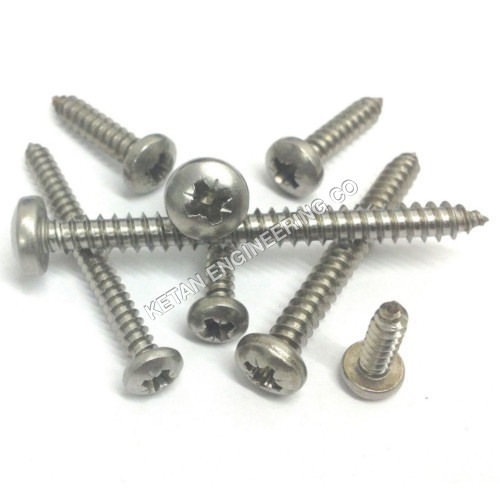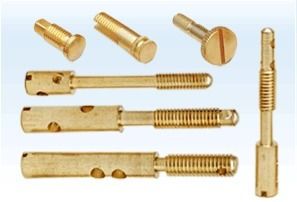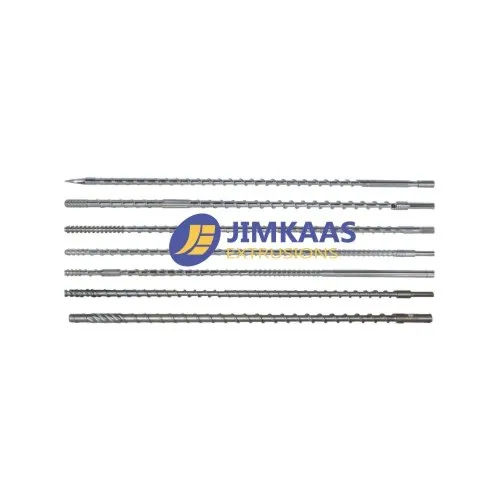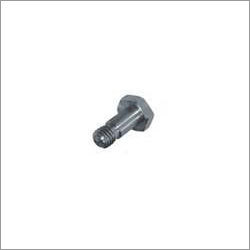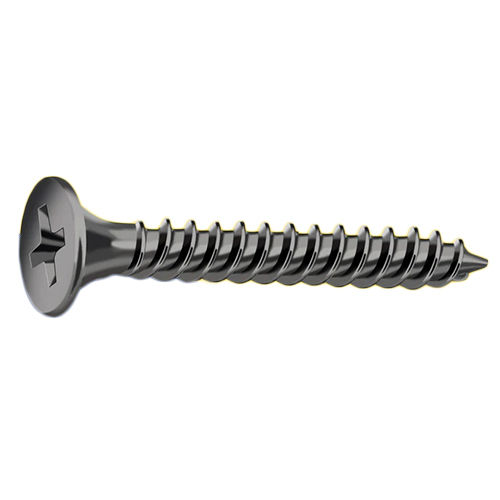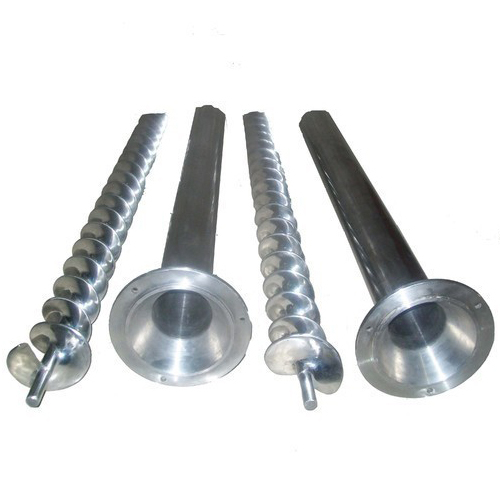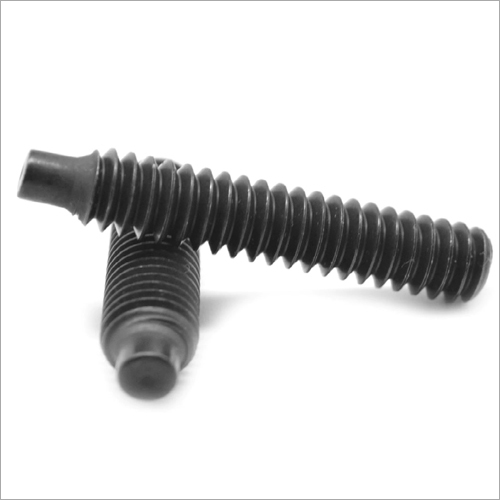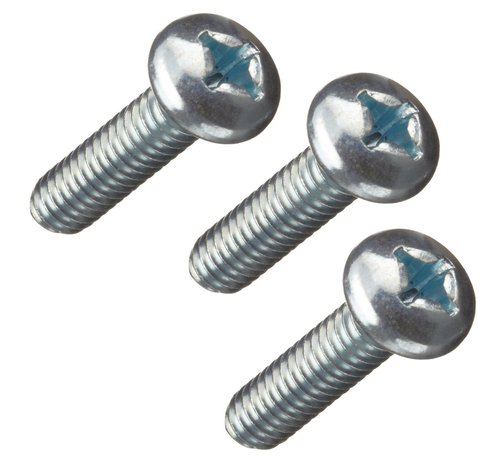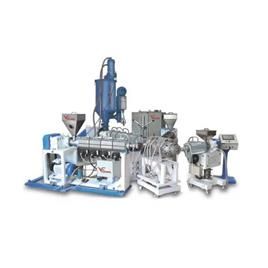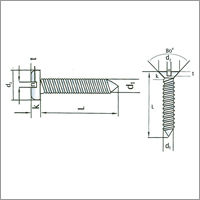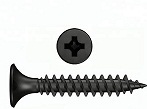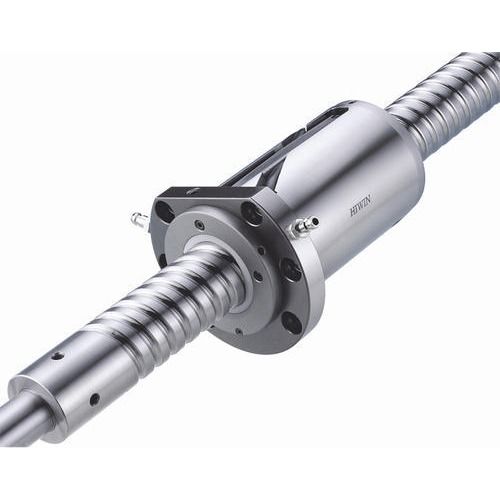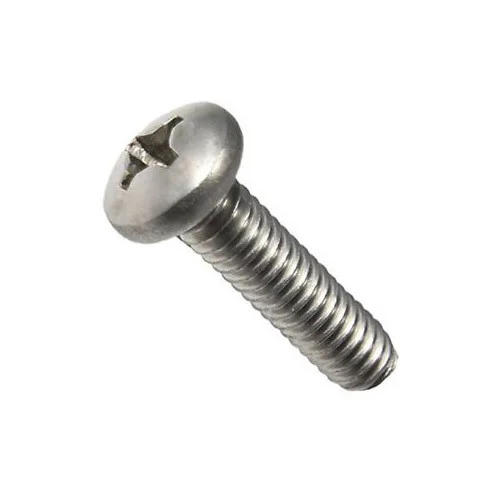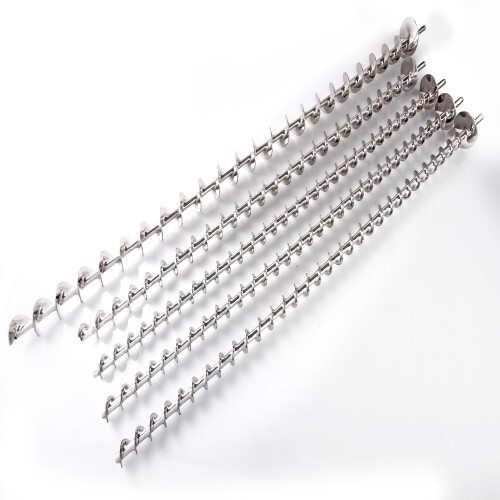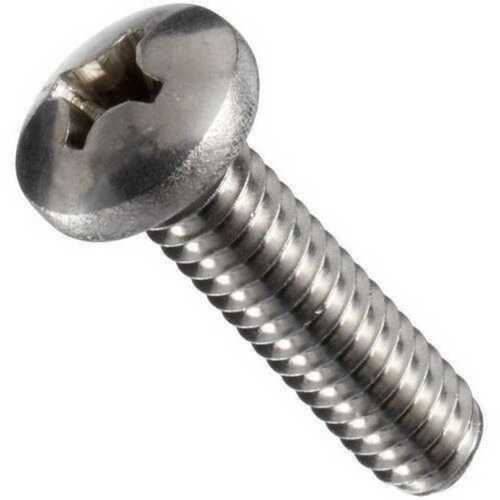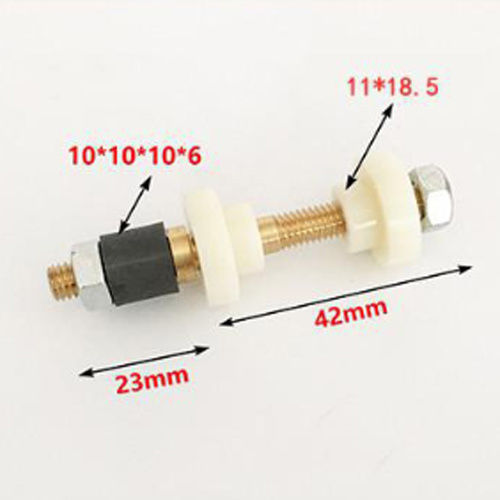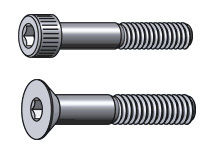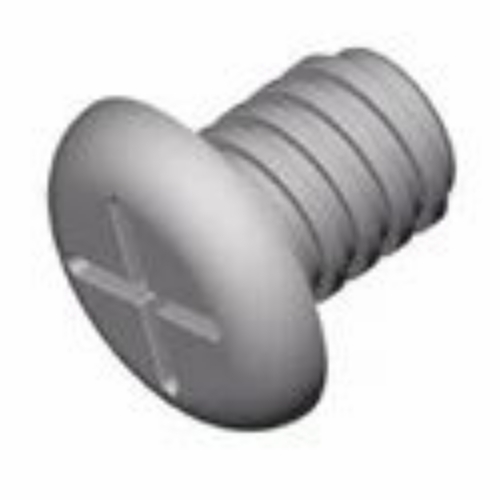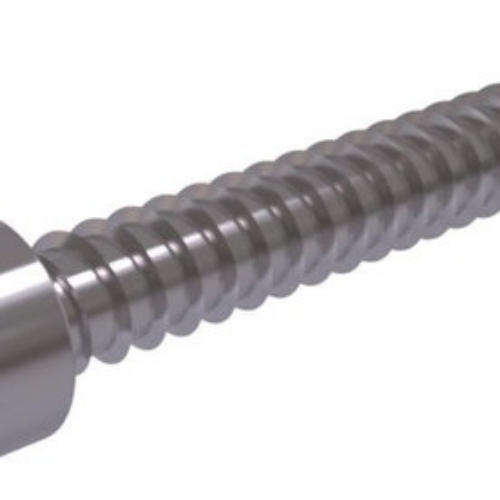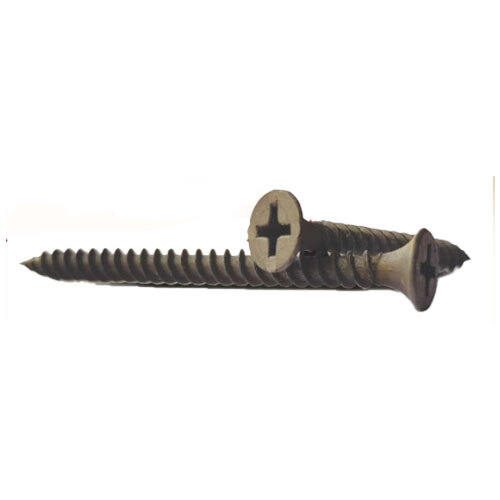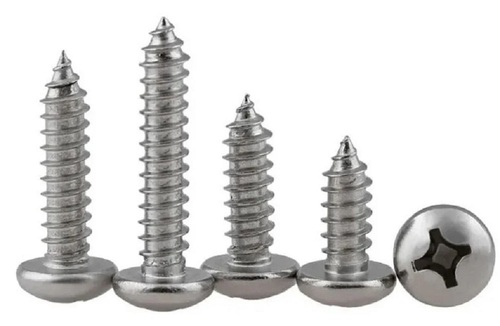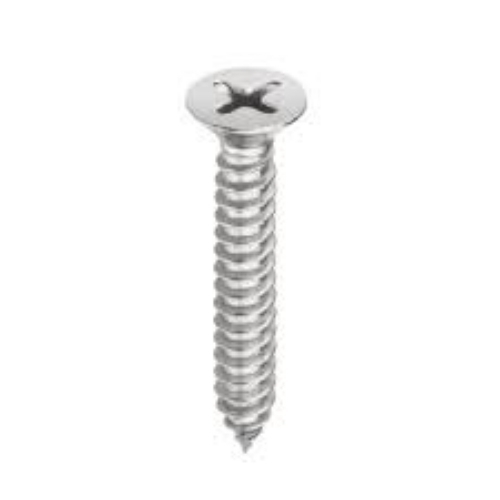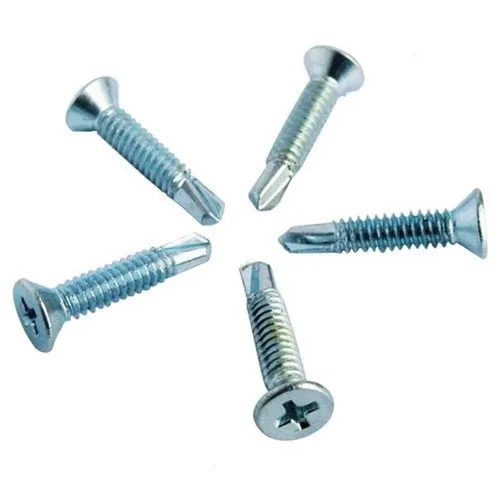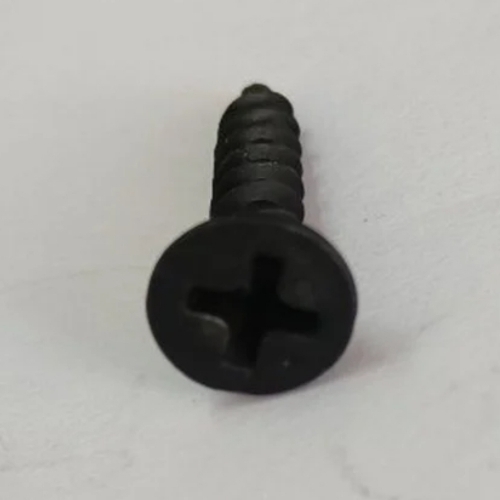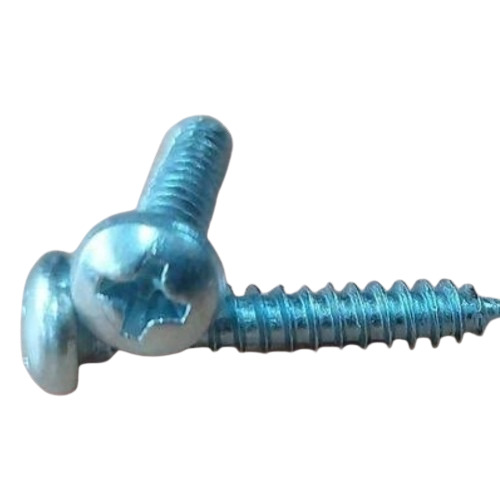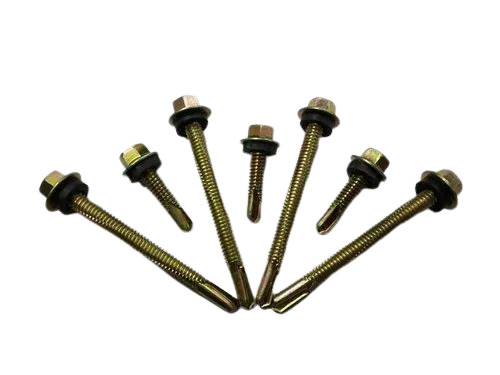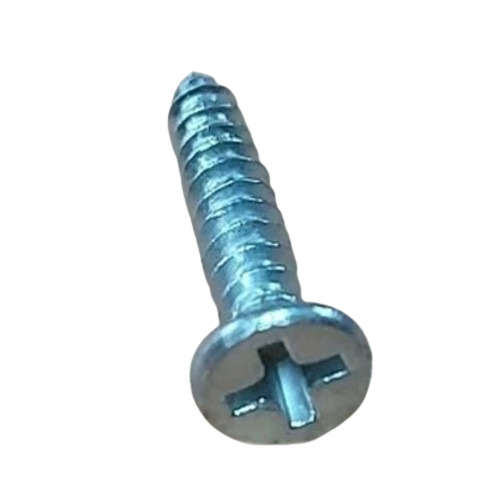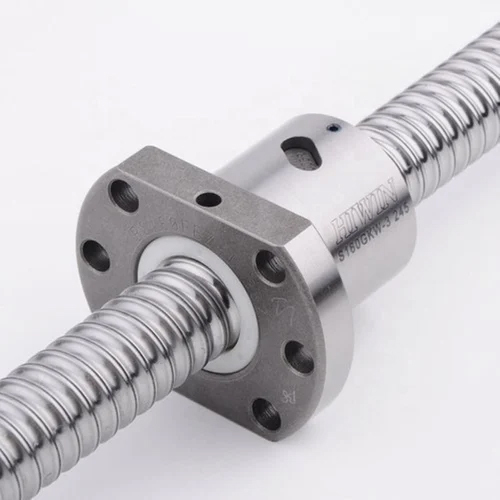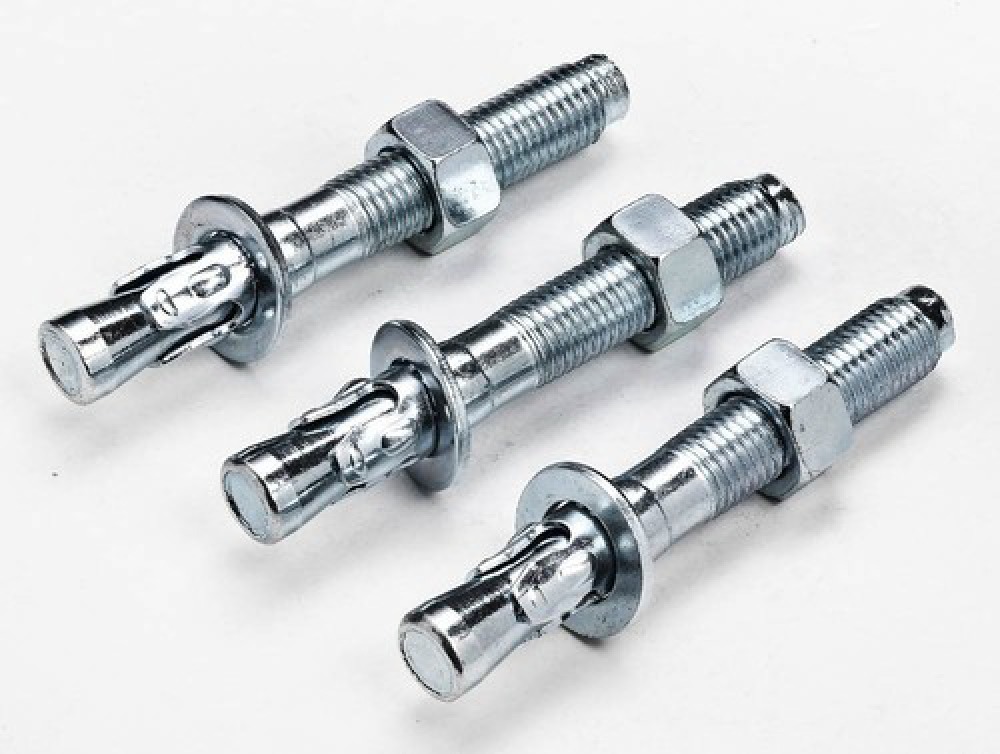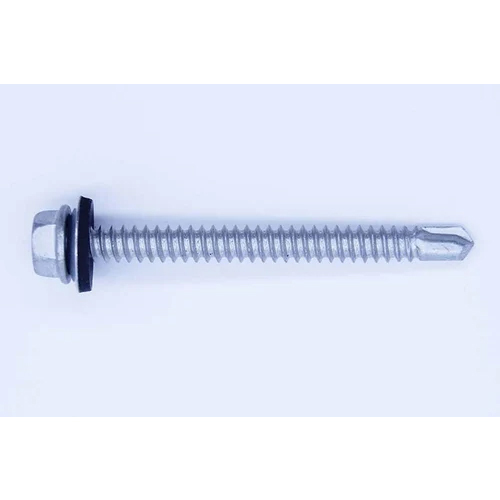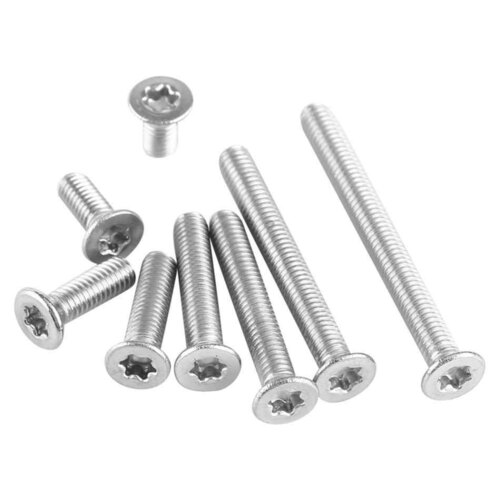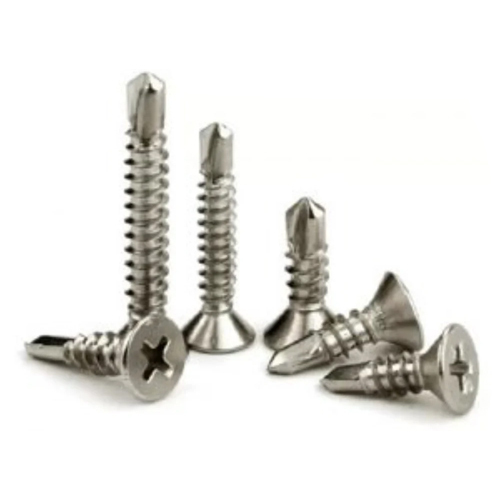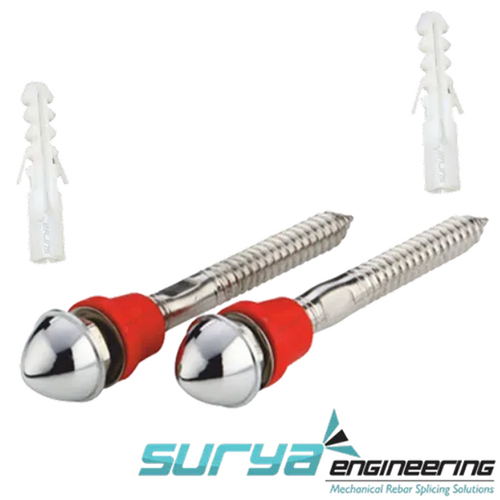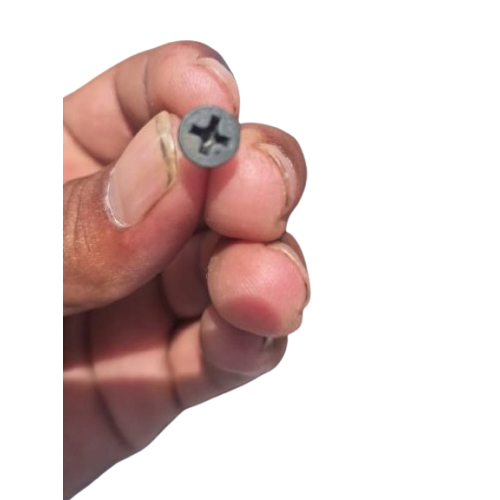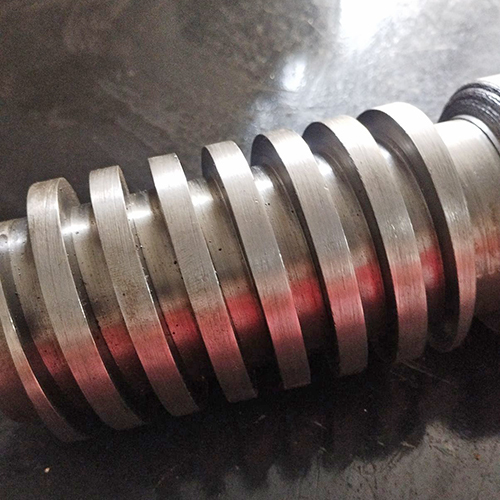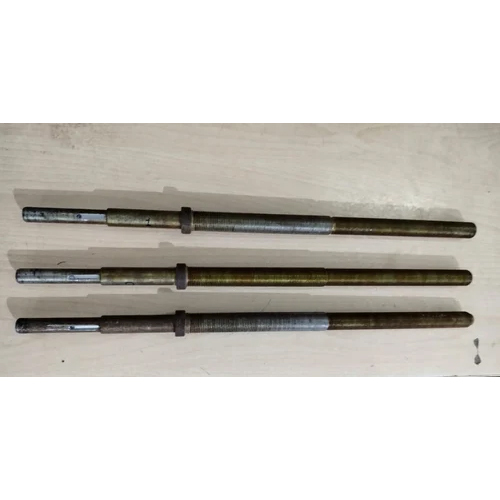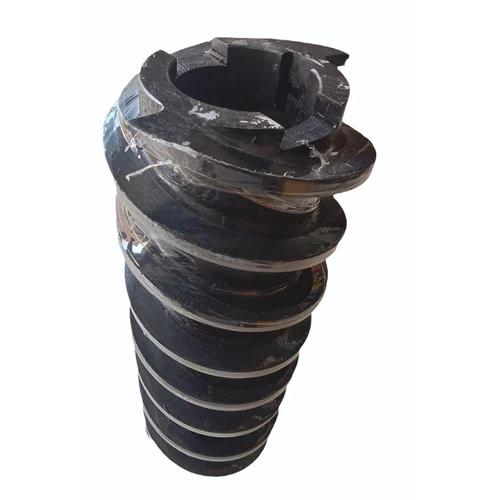Screws
(21191 products)Carbon Steel Drywall Screw
MOQ500 Kilograms/Kilograms
Supply Ability1000 Per Day
Delivery Time2 Week
Hex Screws - Color: Silver
Price: 184 INR/Kilograms
MOQ20 Kilograms/Kilograms
ColorSilver
UsageIndustrial
SizeStandard
Product TypeHex Screws
MaterialStainless Steel
FinishCoated
Plastic Blue Screw Cap With Red Ptfe Preslit Septa
Price: 400.00 INR/Pack
MOQ10 Pack/Packs
ColorBlue
Size2ml
Product TypeHPLC Vial, Caps, Septa
MaterialPlastic
TypeScrew Cap
TreatmentWorm Embossed
Truss Phillips Head Machine Screws
Price: 10 INR/Piece
MOQ5000 Piece/Pieces
Payment TermsCash Advance (CA), Cash in Advance (CID), Cheque, Letter of Credit (L/C), Letter of Credit at Sight (Sight L/C), Telegraphic Transfer (T/T)
Supply Ability100000 Per Day
Delivery Time7 Days
Best Price Metal Screw
Payment TermsCash Against Delivery (CAD)
Main Domestic MarketAll India
Roofing Screws - Color: Multicolor
Price: 2.5 INR/Number
MOQ1000 Number
Product TypeRoofing Screws
UsageTo install Roofing Sheets
ColorMulticolor
MaterialOther, Steel
Quality LevelHigh
Stainless Steel Screws - Application: Engineering
MOQ400 , Piece/Pieces
UsageHardware Fitting
SizeM6-M8-M10-M12-M16-M20
Weight10-12 Grams (g)
ColorSilver
MaterialStainless Steel
TypeStainless Screw
Brass Energy Meter Sealing Screws
Product DescriptionWe are widely recognized manufacturer, supplier and exporter a wide array of Brass Energy Meter Sealing Screws in Jamnagar, Gujarat, India. These are manufactured using finest grade material and smart technology. Trusted quality at nominal price
Grub Screws - Premium Quality Alloy Steel, Long-Lasting Durability, Versatile Applications
Product DescriptionBacked by huge industry experience, we are delivering a wide range of Grub Screws to our consumers. These are broadly utilized in numerous sectors. Our screws are highly admired for their quality and longer life. These are attainable at a very low market rates
Ms Single Screw - Color: Silver
Price: 1000 INR/Unit
MOQ1 Number
SizeAs per requirements
Product TypeParellel Screw Barrels
ColorSilver
UsageIndustrial
Weight150 Kilograms (kg)
MaterialOther
HALDER FULCRUM SCREW
Price Trend: 1000.00 - 10000.00 INR/Piece
MOQ1 Piece/Pieces
Product DescriptionHALDER FULCRUM SCREW
Shoulder Screw - Stainless Steel, M4 to M20 Size, Silver Color, Galvanized Finish | Sturdy, Durable, Corrosion Proof, Ideal for Mechanical Assemblies
Price: 10 INR/Piece
MOQ500 Piece/Pieces
Surface TreatmentGalvanized
Product TypeShoulder Screw
SizeM4 to M20
UsageIndustrial
ColorSilver
MaterialStainless Steel
Crab Grip Gypsum Board Screw - Mild Steel, 13-100mm Size, Silver Color - Flat Head, Self-Drilling, High-Quality for Reliable Installation
Price: 150 INR/Piece
MOQ10000 Piece/Pieces
ColorSilver
UsageHardware Fitting
Size13-100mm
Product TypeCrab Grip Gypsum Board Screw
MaterialOther, Mild steel
TypeMachine Screw
Auger Screw - Stainless Steel, Various Sizes with Sharp Edged Blades | Polished Finish, Rust Resistant, Easy Installation, Durable Design
Product Description\015\012\015\012 Auger\015\012Screw is available in different sizes and dimensions as per\015\012their requirements and available with sharp edged blades. It is made under the\015\012direction of our expert professionals keeping in mind the set in
Coated Dog Point Grub Screw
Price Trend: 1.00 - 6.00 INR/Piece
MOQ500 Piece/Pieces
Product TypeGrub Screw
ColorBlack
UsageIndustrial
SizeAvailable in different sizes
MaterialStainless Steel
TypeOther
Polished Pan Head Screws
Price Trend: 50.00 - 200.00 INR/Piece
MOQ25000 Piece/Pieces
Corrosion ProtectionYes
MaterialStainless Steel
TypeOther, Head Screws
Quality LevelHigh
Head Shape TypeRound
Screw Size1-2 Inch
Single Screw Extruder, Power Source: Electric
Product DescriptionSingle Screw Extruder
Carbon Steel Screw Plugs - Male, Polished Finish | New Box Packaging, Black Color, Industrial Usage
ColorBlack
Product TypeCarbon Steel Screw Plugs
UsageIndustrial
MaterialCarbon Steel
TypeOther, Carbon Steel Screw Plugs
Ve To Clamping Systems Private Limited
Faridabad
Stainless Steel Self Screws
Price Trend: 1.50 - 10.00 INR/Piece
MOQ1000 Piece/Pieces
Product TypeSelf Screws
MaterialStainless Steel
Dry Wall Screws - High-Strength Steel, 1.25 Inch Length , Rust-Resistant Coating
Price Trend: 120.00 - 150.00 INR/Kilograms
MOQ1000 Kilograms/Kilograms
Supply Ability1000 Per Month
Delivery Time2 Week
Sample AvailableYes
Precision Ground Ball Screw - Stainless Steel, Length 100-6000 mm | High Hardness 59-63 HRC, High Positioning Accuracy and Repeatability
Payment TermsCash on Delivery (COD), Cash Against Delivery (CAD), Cheque, Cash Advance (CA)
Sample AvailableYes
Sample PolicyContact us for information regarding our sample policy
Multi System Automech Private Limited
Bengaluru
Silver Bugle Head Black Dry Wall Screw
Price: 319 INR/Box
MOQ20 Bag/Bags
UsageAll
ColorBlack
SizeAll Standard Sizes Available
Product TypeDr wall Screw
MaterialStainless Steel
TypeDry Wall Screw
Galvanized Machine Screw
Price: 4 INR/Piece
MOQ100 Piece/Pieces
UsageIndustrial
SizeCustomized
MaterialStainless Steel
TypeMachine Screw
Quality LevelPremium
FinishGalvanized
Mvd Fasteners Private Limited
Bengaluru
SS Self Drilling Screw - Stainless Steel, Any Size, Hex and Csk Head Shapes | Polished Finish, Corrosion Protection SS304 and SS306, EPDM Bonded Sealing Washer Available
Price: >4 INR/Piece
MOQ100 Piece/Pieces
Corrosion ProtectionSS304, 306
MaterialStainless Steel
TypeStainless Screw
Head Shape TypeHEX, CSK, ALLEN
Head SizeANY
Screw SizeANY
Auger Screws for Food Industry
Price Trend: 250.00 - 25000.00 INR/Unit
MOQ100 US Gallon
Main Domestic MarketAll India
10431 Eye Screw
Corrosion ProtectionYes
Surface TreatmentAnti-corrosion Coating
MaterialStainless Steel
TypeEye Screw, Other
Quality LevelHigh
Head Shape TypeEye
Automatic 5 X16Mm Polished Mild Steel Pan Phillips Head Screw For Industrial
MOQ10 Kilograms/Kilograms
ColorGrey
Product TypeScrew
Corrosion ProtectionYes
UsageHardware Fitting
Surface TreatmentPolished
MaterialMS, Other
Golden Edm Conductive Copper Screw
Price: 600 INR/Piece
MOQ100 Piece/Pieces
ColorGolden
UsageIndustrial
Product TypeEDM Conductive Copper Screw
MaterialCopper
TypeStainless Screw
Quality LevelHigh
Socket Screws - Premium Steel, Hex Allen Head Design | Durable Fastening Solution
Product DescriptionWith enriched industrial experience, we have been able to export, trade and supply a wide spectrum of Socket Screws from Bengaluru, Karnataka, India. Socket screws, also known as Allen head are fastened with a hex Allen wrench. It can be obtained from us at the industry leading cost
Aira Trex Solutions India Private Limited
Bengaluru
Latest From Screws
Ready To Ship Screws
Screws
Introducton
Any mechanical fastening with holes and the ability to be screwed into some other item is commonly referred to as a screw.
Screws having a tapered shaft and sharp threads, such wood screws and self-topping screws, are in this category because they are designed to cut a matching thread in the part to which they are fastened. There are also machine screws, which look like bolts but have a threaded axis all the way through the shaft.
The distinct between bolts and nuts can be based on their function. These definitions indicate that a bolt is a variety of fasteners that is used to connect two unthreaded parts together, whereas a screw is different fastener that is used to secure two threaded parts together.
The literal application of this term is rarely seen in everyday life. Typically, when people refer to a fastener, they have in mind something that isn't self-tapping and has merely a portion of its shaft threaded. Fasteners with a threaded shank or a self-tapping head are commonly referred to as screws.
Sometimes the only thing keeping a screw in place is the friction it generates in the threads. Self-tapping screws experience this friction due primarily to the radial expansion of the hole.
When torque is given to the head, tension is created in the screw, and the parts are compressed, resulting in axial force, which is the primary cause of friction in machine screws. To prevent loosening, machine screws can be secured with a locking nut or thread-locking adhesive.
Different Types of Screws
Here is a long list of screws that can be purchased from any number of sources, from factories to hardware stores.
1. Wood Screws
Wood screws are designed to penetrate wood, but they are versatile enough to be utilised in a variety of other materials that are easily bent. In most cases, they have a countersunk head and a flat head.
2. Wing screw
Wing screws are various fasteners that may be manually tightened or loosened depending on the user's needs. These Screws, which are also known as wing thumb screws, have projections that look like wings and constitute the head of the screw.
They offer leverage for the thumb and forefinger when twisting the screw.The heads of wing screws are flanged, which makes it possible to manually tighten them.
3. Thumb screw
The thumbscrew is a type of torture device that was initially utilised in early modern Europe. It is a straightforward vice, which may or may not feature studs that project from the internal surfaces.
Because of their large diameter and knurled heads, thumb screws may be torqued by hand. This makes them convenient for use in tight spaces.
4. Sheet metal screw
Sheet metal screws are utilised for the purpose of either affixing two pieces of sheet metal to one another or connecting sheet metal to other varieties of metal, such as tubing.
The heads of these screws are normally round, but they can also be flat or even have a hex shape. Keep in mind that sheet metal screws are of the thread-cutting type, which is an important distinction to make.
The extremely fine thread on heat metal screws enables quick and simple installation of the screws into wood or fibreglass.
5. Set screw
Set screws are threaded rod segments that do not have heads and sit flush with the material that is being pierced. The most usual application for them is in conjunction with shaft collars, although they can also be used to grasp an axis in a manner that is perpendicular to the shaft. They are fastened in place using flat heads or recessed sockets.
6. Self -drilling screw
The shank of a self-drilling screw looks similar to a drill bit, and it allows the screw to create a pretapped hole before the threads contact. Aside from that, they look like screws for sheet metal.
The use of self-drilling screws is extremely versatile, and they may be put to use in a wide range of applications that need the joining of two distinct kinds of materials. It is usual practise to use them to attach metal to wood, and sometimes even metal to metal.
7. Particleboard screw
The screws used to attach particle board have a full length thread. Because of its length, the thread obtains a larger engagement and has a higher pull-out strength. Specifically developed for use with composite timbers such as laminated particle board, craftwood, or MDF.
Cabinet manufacturers and those who work in business and residential joinery use these.Particle board screws are extremely comparable to dry-wall screws, although they are noticeably smaller and lighter as a consequence of having a lower load capacity.
8. Mirror screw
Mirror screws are used in combination with mirrors, as their name would imply given their purpose. In most cases, they are made out of a material that is not abrasive, is light, and has a chrome finish.
The most secure method for attaching mirrors to any wall is to use mirror screws. They provide a lovely, secure, and robust mounting solution for vanity mirrors, mirrors, access panels, and splashbacks when they are used conjunction with mirrored screw caps.
9. Machine screw
Machine screws are designed to be used in conjunction with a pretapped hole in order to fasten two pieces of metal work together. The entire length of the shank is threaded, and they typically have a countersink on the end of the shank.
10. Cap screw
Cap screws often have a shoulder that is fairly wide and are designed to grip an object securely, although their bodies may not be threaded the entire length of the screw. They are designed to be put into tapped holes and come with a choice of head types that you may choose from.
Where are Screws Used?
When two or more pieces of wood or metal need to be joined, screws can do the job.There are so many things that can be done with screws.
- To attach two pieces of wood together, screws are a staple of any beginner's toolkit.
- They serve as connectors between various machine components and can be found in numerous industries including electronics, engineering, and manufacturing.
- They serve as fasteners for a variety of sheet metal applications. Sheet metal screws are used to fasten many materials to sheet metal, including wood, plastic, and other metals.
- Quickly drilling into metal or wood is another common purpose. screws are also suitable for use as thread cutters in machines. However, they can be organised in a wide variety of ways, making them particularly well-suited for applications in the building and manufacturing industries.
- They're utilised to bind metal and wood together. Structures including ports, bridges, buildings, and roads typically make use of these. The low pitch of the steel threads makes them ideal for usage indoors.
- They are used to join heavy lumber or other materials that must support a lot of pressure. Commonly, the screws are significantly heavier than what you'd find in a typical wood screw.
- The majority of screw usage occurs in the transportation, manufacturing, maritime, construction, homeware, and aerospace sectors.
- In addition to that, it can be utilised with colour charts, swatch books, catalogues, fabric swatch books, albums, and a variety of other things. If you use grommets or hangers to hang the pattern book, it will be much easier for you to keep it organised and tidy.
- They are versatile enough to be employed in locations where external dampening fasteners are not desired.
- In addition, things can be held together or against one another with the help of screws. A gear or pulley, for instance, can be maintained on a shaft with the assistance of a set screw.
- There are many different kinds of screws that can be used to tighten not just the nut but also the other two pieces. Prior to the popularity of hex bolts, square head screws were the industry norm.
How are Screws Manufactured?
The process of making a screw is outlined below.
1. Raw material
The raw material for nearly all screws is either a solid piece of metal called bar stock or a spool of metal wire. Smaller sizes employ spooled wire because it is more manageable and can be fed constantly into a machine, whereas much bigger sizes require screws to be cut from solid bar.
Wire is oiled and heated to make it more pliable, and then it is put into a straightening machine to remove any kinks or bends.
After the wire has been straightened and cut to length, a series of dies are used to progressively punch an outline of the screw head form, and a chamfer is created at the screw's tip.
2. Drive Cutting
The method used to create a screw drive is determined by the type of head and drive being used. In the case of some drives and driveless head designs, this process is redundant as it is carried out during the cold forming stage. The groove for both standard slotted drives and certain Phillips drives is cut in a separate step.
3. Thread Rolling
After that, the blanks are put into thread-rolling dies, which can take a few different shapes depending on the type of screw being made.
The most common technique, called reciprocating die rolling, involves subjecting the screw to immense pressure over two flat dies, each of which is held in place.
Hundreds of screws may be manufactured in a minute using this method, which imprints the thread onto the screw. When compared to machine-cut screws, rolled screws are much more aesthetically pleasing, durable, efficient, and quick to manufacture.
4. Thread Cutting
Cutting the shank and then the threads from bar stock material can be a more cost-effective method of producing custom fasteners, especially for lower volume orders.
The threads produced using this method are typically 30% weaker than those produced using the rolled method, however this approach is worthwhile to consider for producing small batches of custom screws.
The use of high-precision lathes for the branding of fasteners with minute patterns and logos is another intriguing prospect made possible by this method.
Screws, in this instance, are likely absolutely essential. When two or more pieces of wood or metal need to be joined, screws can do the job. When compared to regular nails, screws are much more reliable in terms of holding force. The seal they create is likewise more secure. Moreover, they are simpler to remove than nails.
FAQs: Screws
Q. Best Screws Manufacturers and Suppliers in India?
Ans: The best manufacturers and suppliers of screws in India are Screw Expert India, Akshar Trader, and Super Screw.
Q. How to Select Screws?
Ans: Make sure the screw will go through at least half the thickness of the bottom material before you choose it.
Q. How do I measure screw size?
Ans: To figure out how big screws and bolts are, you measure the distance from one side's outer thread to the other side's outer thread.
Q. Is a #6 or #10 screw bigger?
Ans: Yes, the number tells you how big the screw is. In contrast to nails and wire, screw diameter decreases as gage number decreases.
Q. What are screws used for?
Ans: Screws are typically used for two purposes: holding things together and setting things in place. When driving a screw into wood, the ridges on the screw require a screwdriver to be spun in a circular motion.
Q. What is a screw made of?
Ans: Brass, Stainless steel, titanium, and a plethora of other metals are all viable options for manufacturing screws and fasteners.
Q. Why are screws called screws?
Ans: Guards, wardens, and Prison Warders are other names of screws. Modern French "écrou," pronounced a-crew, defines the nut of a bolt and is unquestionably the etymon of the English word screw, which derives from Middle French "escroe," pronounced "escrow." It was first documented in use in English about the year 1400.
Q. What are 5 different types of screws?
Ans: Here are the 5 most common types of Screw:
-Sheet Metal Screw
- Lag Screw
- Wood Screw
- Structural Screw
- Security Screw
Related Topic:
Top 10 Screws Manufacturers, Suppliers & Exporters in India
Manufacturers & Suppliers of Screws
Company Name | Member Since |
|---|---|
Niko Steel And Engineering Llp Mumbai, India | 23 Years |
Prime Industrial Components Llp Jamnagar, India | 19 Years |
Kirti Steel Industries Mumbai, India | 18 Years |
Zenith Industries Jamnagar, India | 17 Years |
Associated Industrial Stores Howrah, India | 14 Years |
Ketan Engineering Co Mumbai, India | 13 Years |
Victor Enterprise Mumbai, India | 13 Years |
Shri Balaji Roofing Vadodara, India | 11 Years |
Inder Industries Jalandhar, India | 11 Years |
Precision Fast Tech India Jamnagar, India | 8 Years |
Popular Products


